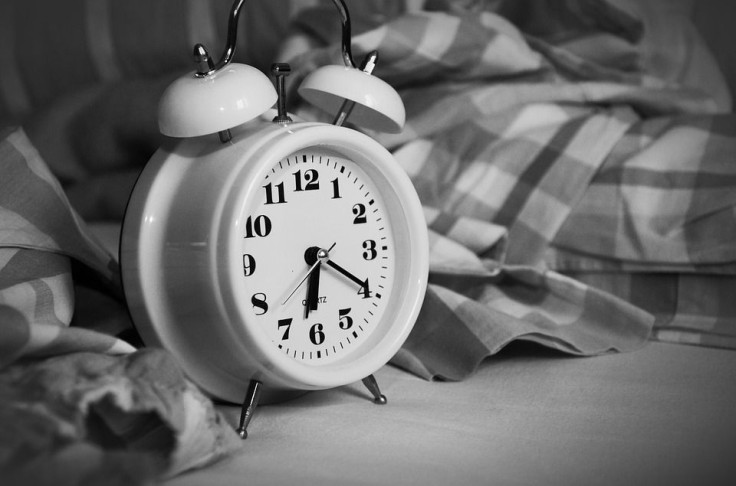‘Social Jet Lag,’ Or Going To Bed Later On The Weekends, May Take A Toll On Your Health

Do you go to bed later and sleep in on the weekends? If so, you may have what some researchers call “social jet lag.”
While it appears to be a harmless problem, a new study has associated it with poorer health, worse mood, and a greater feeling of sleepiness and fatigue. The research team also associated it with long-term health effects, such as an increased risk of heart disease.
Read: Sleep Loss Hurts Your Ability To Recognize Facial Expressions Such As Happiness Or Sadness
“These results indicate that sleep regularity, beyond sleep duration alone, plays a significant role in our health,” lead author Sierra B. Forbush said in a statement. “This suggests that a regular sleep schedule may be an effective, relatively simple, and inexpensive preventative treatment for heart disease as well as many other health problems.”
To understand how social jet lag affects health, Forbush and her colleagues analyzed sleep data from 984 adults between the ages of 22 and 60 years. All of the participants were part of the Sleep and Health Activity, Diet, Environment and Social Factors (SHADES) Study, funded by the National Institutes of Health.
To determine if an individual suffered from social jet lag, the researchers subtracted their weekday sleep midpoint from the weekend one. Sleeping patterns were gathered through the Sleep Timing Questionnaire, which is used as an alternative to a sleep diary. It assesses habitual bedtimes and wake times. Participants’ health was self-reported using a scale and survey questions.
It may sound like a good idea to make up for your missed sleep on the weekends, but it can have an even larger effect on the body than examined in this study. Dr. Robert Oexman, Director of The Sleep to Live Institute, who was not involved in the study, explained the many consequences.
“Any time we shorten sleep we can see the short-term consequences of fatigue, memory issues, increased risk of accidents, changes in glucose metabolism, and increase in inflammation," Oexman told Medical Daily. “If it becomes chronic we see a lower immune system, increased risk of heart disease, some types of cancer, increased risk of anxiety and depression.”
Read: Tricking Your Mind Into Falling Asleep: Placebo Eases Insomnia Symptoms, Review Says
Prior research has also associated social jet lag with negative health effects. In 2012, a study linked the effect to an increased risk of obesity as well as being more likely to smoke and drink more alcohol, among other habits, WebMD reported.
But, how do you combat social jet lag? Get 7 to 9 hours of sleep each night, Oexman recommends.
“It is probably unrealistic to keep this schedule every day of every week. The occasional night out may be OK. If you can choose one night to go out it may be best to do that on Friday night. You should follow this by going to bed at your normal time on Saturday night with a normal wake time on Sunday morning,” Oexman advises. “This will allow you time to recover on Saturday and Sunday. Make sure to not nap on Sunday. If you find yourself getting sleepy, go for a walk or get some form of exercise preferably outside in the sunshine. Make sure to go to bed at your normal time on Sunday.”
See also: Get Better Sleep: Infographic Shows Why You Can’t Make Up For Hours Of Missed Sleep
Sleep Disorder May Be Early Sign Of Parkinson’s Disease And Other Neurological Conditions
Published by Medicaldaily.com



























